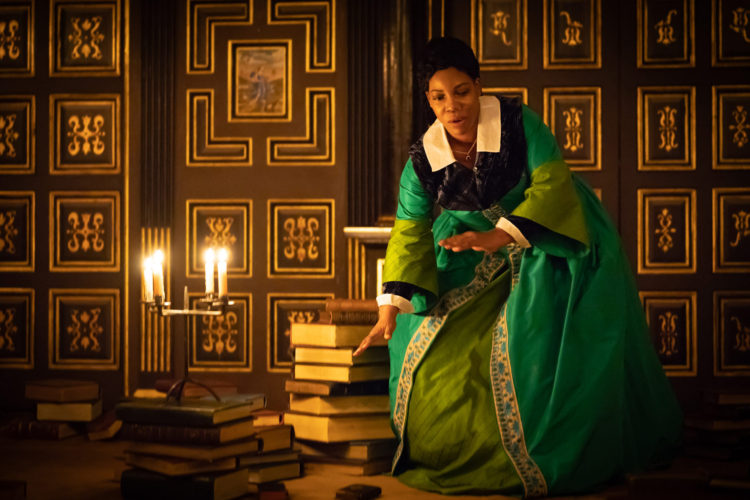This photo of the setting of the Globe’s 2018 Dr Faustus, directed by Paulette Randall, shows how the symbolic use of objects on stage can define a space designated for a particular activity. In this production of Christopher Marlowe’s tragedy, Jocelyn Jee-Esien’s female Faustus was discovered in a space intimately organised as a study by the use of a single stage-prop: small piles of books were scattered across the stage, with candles placed upon them. On the relatively bare, non-naturalistic Elizabethan stage, a few simple props would often be the markers of a specialised space.
The individual books were visible (to audience members in the front seats at least) as belonging to the different branches of knowledge that Faustus has worked through and outgrown – philosophy, medicine, law, and theology. They also suggested the power of the book as a stage-prop in a period in which the book had become a newly exciting but dangerous object through the impact of the printing press, the individual access to the Bible offered by the Reformation, and the centrality of reading and interpretation, as well as of classical, pagan learning, in humanist culture.
It is no accident that the play begins with the Prologue presenting Faustus seated in his study, and ends with Faustus’ last words, as the devils drag him to hell, before the Chorus enters to lament his fate: ‘I’ll burn my books! Oh Mephistopheles!’ (B-text, 5.3.185)











